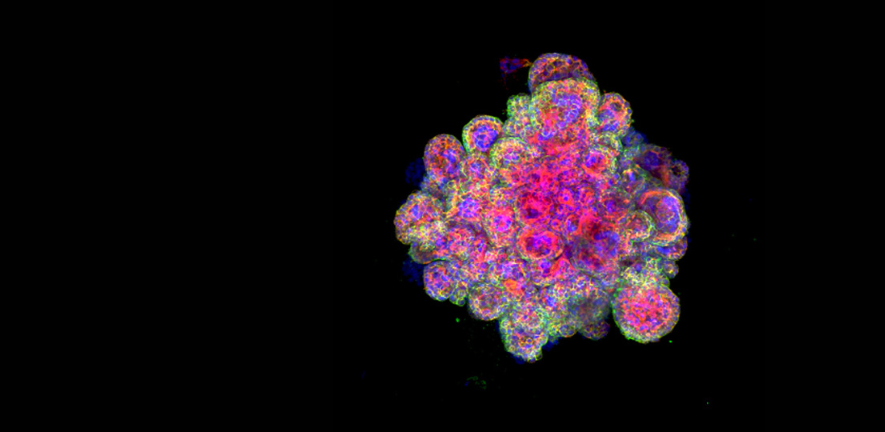
Submitted by Livia Harriman on Wed, 17/01/2024 - 11:55
Scientists have grown ‘mini-placentas’ in the lab and used them to shed light on how the placenta develops and interacts with the inner lining of the womb – findings that could help scientists better understand and, in future, potentially treat pre-eclampsia.
The study, published today in Cell Stem Cell by Professor Ashley Moffett from the Department of Pathology at the University of Cambridge, shows that it is possible to experiment on a developing human placenta rather than merely observe specimens to study major pregnancy disorders.
Successful pregnancy depends on the development of the placenta in the first few weeks of gestation. During this period, the placenta implants itself into the endometrium – the mucosal lining of the mother’s uterus.
Interactions between the cells of the endometrium and the placenta cells are critical to whether a pregnancy is successful. In particular, these interactions are essential to increase the maternal blood supply to the placenta for fetal growth and development.
When these interactions do not work properly, they can lead to complications, such as pre-eclampsia, a condition that causes high blood pressure during pregnancy. Pre-eclampsia occurs in around six in 100 first pregnancies and can put at risk the health of both the mother and the baby.
“Most of the major disorders of pregnancy – pre-eclampsia, stillbirth, growth restriction, for example – depend on failings in the way the placenta develops in the first few weeks. This process is incredibly difficult to study – the period after implantation, when the placenta embeds itself into the endometrium, is often described as a ‘black box of human development’, said Professor Moffett.
Continue reading this article in its original form by Craig Brierley, Head of Research Communications here>>
Our work in the Press
The piece aired on ITV News at Ten. You can WATCH it here:
https://www.itv.com/news/2024-01-17/scientists-grow-mini-placentas-to-understand-pregnancy-disorders
The research has also been covered here:
· BBC News https://www.bbc.co.uk/news/uk-england-cambridgeshire-68006469
· The Independent https://www.independent.co.uk/news/uk/university-of-cambridge-switzerland-academics-cambridge-european-research-council-b2480243.html
· The STandard https://www.standard.co.uk/news/health/university-of-cambridge-switzerland-women-cambridge-royal-society-b1133022.html
Reference
Li, Q et al. Human uterine natural killer cells regulate differentiation of extravillous trophoblast early in pregnancy. Cell Stem Cell; 17 Jan 2024; DOI: doi.org/10.1016/j.stem.2023.12.013
